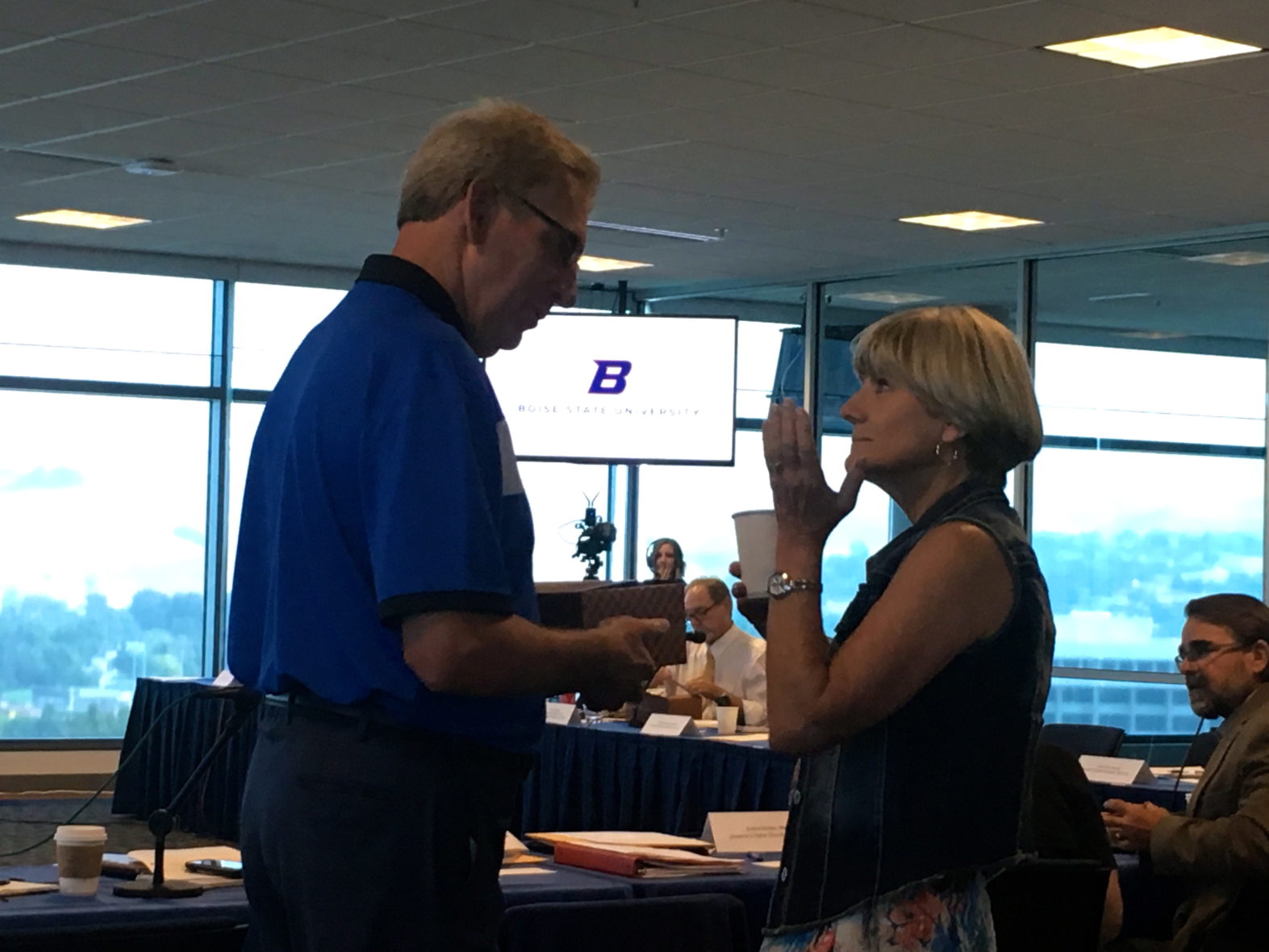Imagine a college system that’s open 24 hours a day, 365 days a year — and accessible anyplace in Idaho.
A gubernatorial task force spent some time Friday envisioning just such a system. The long-range goal is to boost Idaho’s lackluster and stagnant college graduation numbers, by encouraging more Idahoans to enroll in college in the first place.
“It’s a very intriguing and interesting concept for a rural state like Idaho to lead on this,” State Board of Education member Linda Clark said during Friday’s task force meeting.

Clark co-chairs Gov. Butch Otter’s 36-member higher education task force, which includes college and university presidents, State Board members, business leaders and six state legislators.
The task force is expected to vote on recommendations at its Sept. 15 meeting. On Friday, the group talked through a long list of possibilities.
Here’s a sampling.
The ‘digital campus’
The task force’s job is to help Idaho meet its “60 percent goal” — getting 60 percent of its 25- to 34-year-olds to hold a postsecondary degree or certificate. To get there — and improve on a 2015 rate of 42 percent — Idaho needs to get an additional 40,000 students into the higher education system.
That’s the driving force behind the “digital campus” proposal, which would allow students across Idaho to take remote classes from any of the state’s existing colleges and universities.
Other states have experimented with this idea, but only on a small scale. “There’s nothing you can just steal off the shelf,” said task force member Mike Mooney, a retired bank executive who worked on the proposal.
As a result, the state would have to resolve a host of logistical issues.
The state would have to decide whether to work with education vendors who have developed online college-level courses — an idea that isn’t popular with many traditional college administrators, said University of Idaho President Chuck Staben.
The state would have to better coordinate course offerings at brick-and-mortar institutions, even aligning course numbers to help students navigate the system.
Then there’s the question of out-of-pocket cost. While some states are moving toward tuition-free models, even at traditional colleges, Mooney said students should pay some nominal costs for an online class. “There’s no investment with the student, when it’s free.”
Delivering online college classes might not be an issue, however. The task force is looking at collaborating with the Idaho Digital Learning Academy, which offers online K-12 classes statewide.
“We’re several steps ahead of the game,” Clark said.
Increased scholarships
The task force is looking at ways to expand the state’s merit and need-based scholarships.
The idea is twofold: to help encourage more high school graduates to enroll in college, and help college students stay in school.
One option is to increase tax credits for contributions to scholarship funds.
Outcome-based budgeting
More than 30 states tie at least a portion of university budgets to outcomes — such as retention or graduation rates, serving at-risk students or offering degrees that are in high demand in the work force.
The task force is looking at this idea, but no dollar figure is attached to it.
Some task force members expressed concern, saying the outcome-based metrics have nothing to do with the quality of course offerings. Staben predicted another effect.
“This is a formula that will pit institutions against each other,” he said. “I’m not saying that’s wrong, but that’s what it will do.”
But Sen. Abby Lee urged her colleagues to embrace change, because it’s inevitable.
“It’s not going to be the way that it was,” said Lee, R-Fruitland.
